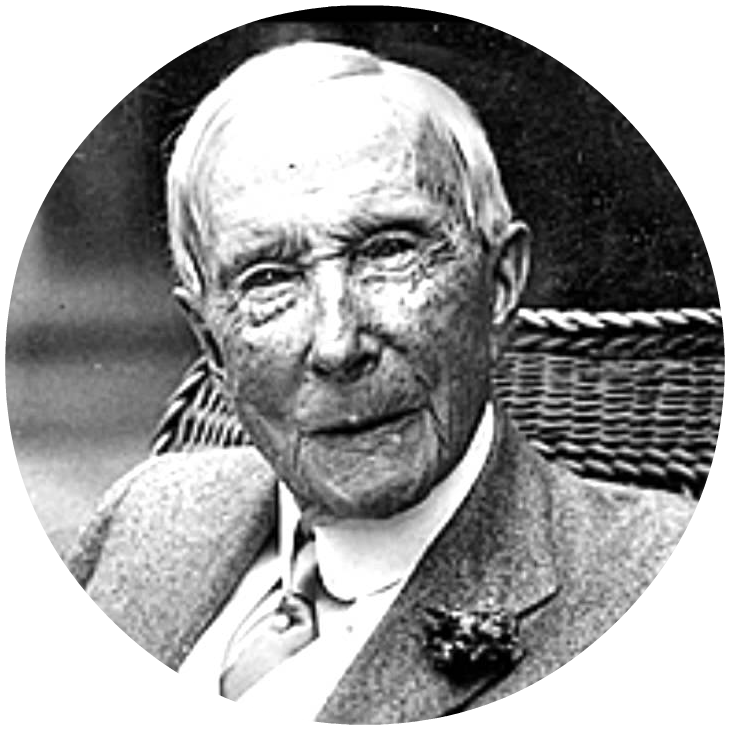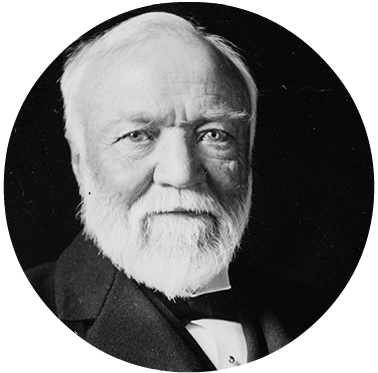This spring in Paris the first author program of Adrian Slywotzky “Business Design T&T: Today and Tomorrow” was hosted by Lviv Business School of UCU (LvBS). The program included five training units for the formation of a comprehensive vision of own company, including the migration of values, models of profit and breakthrough business design, brand strength and demand, mega trends, as well as the history of business and ethics. On this topic we offer to stop to find out the examples of the most successful and wealthiest strategists, magnates and businessmen why the ethics affects the success of a business, and how it is associated with the value migration. Next is the direct speech of the leading business futurist of the world, who twice was in the ranking of the world business Thinkers 50, Adrian Slywotzky.

Identify two people who are very successful, but obviously unethical in their actions. Why? It is in these examples by means of which it is easier to explain what is the ethics, and what are the limitations. First, we suggest to consider the curious case of John Rockefeller.
John ROCKEFELLER
 Everyone knows who he is. Know that he was rich, powerful, progressive, cynical, creative. John Rockefeller was a monopolist. He made a real revolution in the oil industry. Rockefeller looked at every aspect of the business in terms of optimization: why is it so expensive? Do we have smarter and cheaper way to do this? There were no too small expenditures, about which he would not have thought of. For example, he began producing barrel to transport oil independently, and thus each barrel had cost him 90 cents instead of $ 2.50.
Everyone knows who he is. Know that he was rich, powerful, progressive, cynical, creative. John Rockefeller was a monopolist. He made a real revolution in the oil industry. Rockefeller looked at every aspect of the business in terms of optimization: why is it so expensive? Do we have smarter and cheaper way to do this? There were no too small expenditures, about which he would not have thought of. For example, he began producing barrel to transport oil independently, and thus each barrel had cost him 90 cents instead of $ 2.50.
Many of us encountered with the same questions, trying to develop your business and achieve high results.
Rockefeller started out in Cleveland. Do you know why? He lived there and that is the reason. There he had a powerful advantage in negotiating contractors (such as the railway), and he always got the lowest price. He purchased a number of companies. How he did it? He bought the leader on the market, and made it an important partner of the business. And he had no-one to convince anymore, others themselves came to him. Therefore, he always had the advantages in negotiations and low price.
After reading a book about Rockefeller (Ron Chernov “Titan”), I began to look at the business as he looked at it. He has a specific set of principles, there was a “software” in his head. One of the features was that he every day think thoroughly over every single aspect of the system: cost, revenue, transportation, competition, talents.
He managed to get the lowest prices for the transportation of oil by rail. And he was extremely happy that it has caused such a hype and scandal in that time business, because it distracted the real competitors from the direct sources of income. I was looking for the answer to the question “what were the direct resources of income?” for a long time later.
However, the big business makes big challenges and creates the temptation. Rockefeller had one problem: he was too aggressive. For example, prices dumping was one of those things that he had not to do in his business to make it successful, but he still did it. And then he ran from State to State, from Pennsylvania to Connecticut, then to New York to escape from the sheriff. Can you imagine the multimillionaire, who does so?
But what were the consequences of this aggressive behavior, committing of illegal or half-illegal actions, cheating customers? Could this contribute to the business, and should we choose this tactic? This is an important question. Here is what I realized, after spending a few days with the mentioned book and the Internet. Rockefeller was so focused on the various unethical steps that he completely missed the value migration. He missed oil exploration in Baku, Indonesia, even on the West coast of the United States. He missed the expansion of the use of oil for the railway and marine transportation (instead of coal), he missed Edison, who next to him has developed an electric lamp. And it threatened the business of Rockefeller, because before that the oil was used for the lighting. And he missed all of that, undoubtedly he was one of the greatest businessmen of all time, that made his success on his own, without schools, mentors or examples.
I am not saying that to be ethical is profitable, but it is much more profitable than not to be so.
Andrew CARNEGIE
 You also know Andrew Carnegie. A wealthy businessman, he built three thousands of public libraries, and was the largest steel magnate in the world. Also aggressive, smart, he was also pure entrepreneur, not an inventor. Actually, he did what the China has done until recently: he brought the steel production technology from England. He also created the demand, he taught to use the steel in the construction of bridges, for example. Carnegie was also a philanthropist, he spent a lot of money to achieve peace in the world, advocated the importance of the international law in the resolving of inter-ethnic conflicts, he financed the construction of the Peace Palace in The Hague, where International Arbitration Court had to be accommodated, wrote books about the peace.
You also know Andrew Carnegie. A wealthy businessman, he built three thousands of public libraries, and was the largest steel magnate in the world. Also aggressive, smart, he was also pure entrepreneur, not an inventor. Actually, he did what the China has done until recently: he brought the steel production technology from England. He also created the demand, he taught to use the steel in the construction of bridges, for example. Carnegie was also a philanthropist, he spent a lot of money to achieve peace in the world, advocated the importance of the international law in the resolving of inter-ethnic conflicts, he financed the construction of the Peace Palace in The Hague, where International Arbitration Court had to be accommodated, wrote books about the peace.
But at the same time, when his workers went on strike to demand their salary raise a bit, and he not only rejected them, he shot them by the hands of his partner Frik. At the same time he preferred to stay in Switzerland. I do not know how much it is unethical, but it is definitely illegal. If we analyze the financial performance of his business, then in a time when the company’s profits have increased ten times, the wages have increased less than half as much. Carnegie completely missed the chance to make his workers the best allies, as is, for example, occurred in Japan in the 1960-70 ‘s.
Henry FORD
 Henry Ford is the biggest strategist. He was not an engineer like Rockefeller nor a technologist like Carnegie. He was “Steve Jobs” of his time, he has created not only a product but a whole process. His “T model” changed the planet. But, like Rockefeller, he thought systematically. For him importance was not in how much he lowered the car price but in how much people in America could afford it. In his action plan the value have the other people. In January 1940 he gathered together all his employees to notify that he raises their salaries more than twice. Why he did it? To create his audience on his own. As a result, he achieved three things:
Henry Ford is the biggest strategist. He was not an engineer like Rockefeller nor a technologist like Carnegie. He was “Steve Jobs” of his time, he has created not only a product but a whole process. His “T model” changed the planet. But, like Rockefeller, he thought systematically. For him importance was not in how much he lowered the car price but in how much people in America could afford it. In his action plan the value have the other people. In January 1940 he gathered together all his employees to notify that he raises their salaries more than twice. Why he did it? To create his audience on his own. As a result, he achieved three things:
- he grew his own market, giving people a higher wages and lowering the price of the car;
- he significantly lowered the level of staff turnover in his business.
- And the third, the most important, he created the middle class in the United States of America. And 50 years since then its percentage increased, and this has a huge impact. And Carnegie could do that 30 years earlier, but he did not.
But to be ethical it is not enough of that. It still remains necessary to understand the migration of the values and how the world and the desires of the consumer are changing. And what happened with us, buyers in 1920 years? They become even better. They wanted new cars not just black, as with directories. And here General Motors joined the game that created a new business model to fit the new values of the market. And a prominent businessman of the 20th century, Henry Ford totally failed in that. If in the 1910 ‘s Ford had 55% of the market, in the 20 ‘s his percentage remained at around 12%, and never returned to the top position. It once again proves that to be good is not enough. Think about the ethics in the context of how expensive it can be.
Whether people lie in the business?
 Yes, we all know about it. But you have to ask yourself one question: do I have to lie? Wandering through the history of the past 50 years, we can see there are examples of the best people in politics, sports, art, who does not lie. Question: is it possible to be a super-dominant in the business while not deceiving?
Yes, we all know about it. But you have to ask yourself one question: do I have to lie? Wandering through the history of the past 50 years, we can see there are examples of the best people in politics, sports, art, who does not lie. Question: is it possible to be a super-dominant in the business while not deceiving?
Yes, if you understand what are the real relationship. And that is the balance between the three aspects: business values, ethical leadership and social values. Think, what Carnegie missed, what Ford did, and what he could do if he had taken into account the value migration, and about the social value of Rockefeller. If you analyze that, then you will realize that the lie steals your growth.
If you want somehow to become a real ethical leader, you should understand that each game field is rough. No matter in what country, no matter under what circumstances, some things you can control and some not.
Well, but if you still want to be unethical leader, I have a few tips for you:
1. Do not get caught.
2. Do not look in the mirror.
3. Do not look into the eyes of your own children.
And know that the success makes you blind and deaf. But the lie makes you be the other as you are.
“Be greedy. But in the long term perspective” (Gus Levy, Goldman Sachs).
Article prepared by Roksolyana Voronovska and Marianna Firtka for SBR.




















